Barcamp Participants Focus on Digital Trends for Renewables
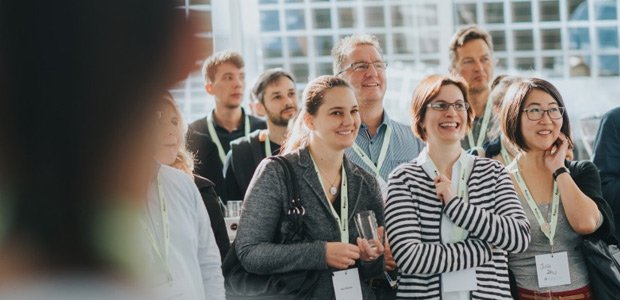
Disruptions in the energy industry: What are they and what impact will they have? These were the topics of the sixth Barcamp Renewables. Here is a short summary of the most important trends and theories.
Lively kick-off discussion
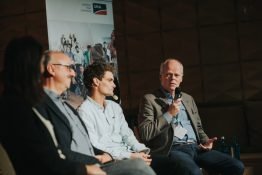
Disruptions in the energy industry: intriguing statements from Martin Rühl, Julian Kretz and Daniel Bannasch
This year, the Barcamp started with a panel discussion at Gleis1 in Kassel. Energy industry representatives discussed future disruptive forces in the energy industry. Martin Rühl from the Stadtwerke Union Nordhessen remarked that “renewables have already won the race for the future.”
Energy blogger Daniel Bannasch from Metropol Solar was also certain that renewables are now unstoppable: “With 1 m² of photovoltaics, it’s possible to drive 1,000 km per year with an electric car.” The Googles and Apples of this world have long realized this potential and will drive forward the goal of 100% renewables with new business areas, according to Bannasch. This is contrary to policies that prohibit, rather than promote, especially in Germany, which was a point that received much applause from the audience.
At the same time, concerns were expressed about how a decentralized, democratic, bottom-up energy transition can be achieved. Here, Julian Kretz from Next Kraftwerke pointed out that a great deal of the responsibility lies with public utilities and civilian-led energy cooperatives. It is exactly these important players who should be aware of the greater complexity and work more intensively with programmers and start-ups on digital solutions, to make sure they don’t get left behind.
Law on digitization: the end for blockchain?
One of the top subjects at the BarCamp was the session by Marek Seeger, Information Security Manager at SMA, on the effects of the new German law on digitizing the energy transition. “With regard to security, the law on digitization, as far as the latest technology is concerned, is adequate, in principle, but future technologies will be impeded or even prohibited through the enforced use of smart meter gateways,” said Marek. Criticism was primarily directed at the insufficiently clear regulation on the use of smart meter gateways. It is not yet possible to assess the precise effects with regard to technologies such as blockchain and artificial intelligence. However, it is foreseeable that there is a massive potential for conflict here. Audience opinions were controversial: The legislators want to retain control and prevent monopolies by companies.
Bitcoin, blockchain and smart contracts
Bitcoin consultant Britta Aufermann shed light on the situation and was met with strong interest from participants. The clear message of the session was that Germany has failed to take advantage of this worldwide trend of trading in bitcoin. However, for the (digital) energy industry, it would be a major opportunity if it embraced the concept and took advantage of it by introducing a SolarCoin, for example. In particular, combining blockchain technology with photovoltaics could also reduce the energy resources to be used. Unfortunately, time was too short to deal with this subject in detail. However, everyone agreed that it is worth keeping up with this highly exciting topic.
100% renewable energie sources in 2030 are not only possible but probable. This is demonstrated by Tony Seba in his book “Clean Disruption of Energy and Transportation,” which is now also available in German as “Saubere Revolution 2030.” The initiative came from Daniel Bannasch, who picked up the book fresh from the printer on the morning of the BarCamp and sold it exclusively to the participants.
Winning the fight for attention, virally
During her session, Johanna Gampe, assistant lecturer at the University of Kassel, asked what kind of digital promotions renewables can harness to benefit them. The main point: Let’s talk less about the “what” and more about the “how.” For example, how do civilian-led energy cooperatives reach a broad public across all age groups to boost involvement? One possibility is viral communication via social media.
Photovoltaics are becoming increasingly digitized
During his session, Detlef Beister, Business Development Manager at SMA, presented the work of the SolarPower Europe Digitalization & Solar Task Force. He made it clear that digitization has already found its way into all points of the PV value chain. He also pointed out the political apathy and referred throughout the session to the ten “regulatory requirementss.” In these, the task force has formulated what is necessary for policy makers to do in order to ensure that the digital transformation of the energy system can be driven forward at pace.Read more about his work with PV industry association SolarPower Europe here: .
Conclusion
The sixth Barcamp Renewables was an event full of content, with 120 participants presenting exciting examples of success and discussing the most important questions for a digitized, renewable energy supply of the future. Naturally, there was also a hands-on test from the e-mobility sector: In addition to the two e-cars, Barcamp participants also tried out an electric skateboard by Mellow for the first time.
It will therefore be exciting to see what kind of electric vehicles participants will use to arrive next year and which of the concepts from today will already be the electricity of yesterday 😉

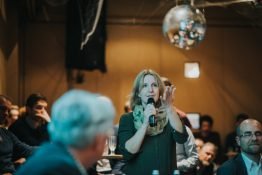
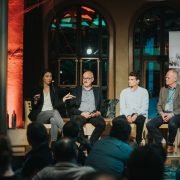
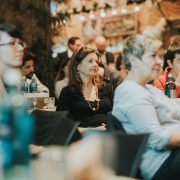
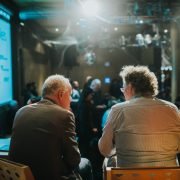
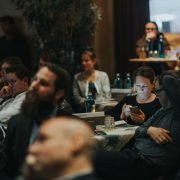
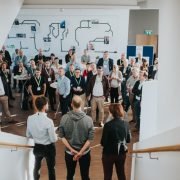
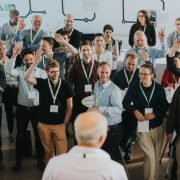

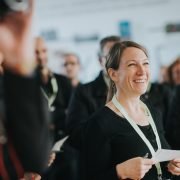
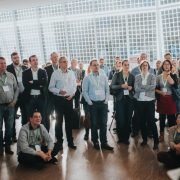

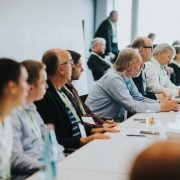
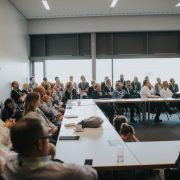
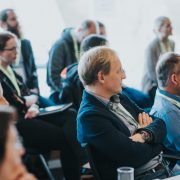
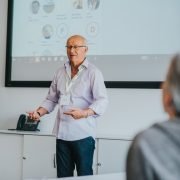
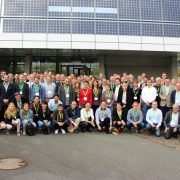
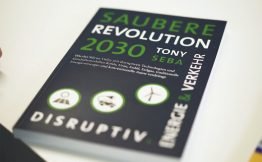
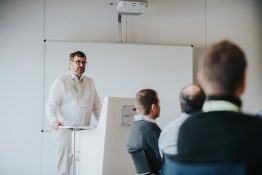
Feel free to contribute!
Thanks for your question or comment. Due to the holiday season we won’t be able to give you an answer before January 2nd. Thanks for your understanding.